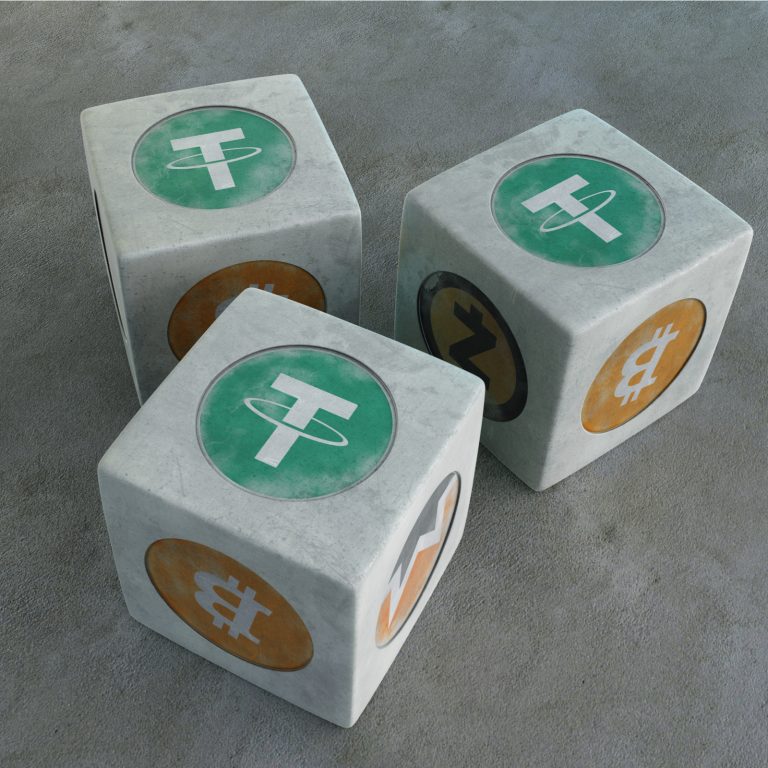
If you thought that only proof of work coins were susceptible to double spending attacks, you haven’t met tether. The world’s ninth largest crypto by market cap and second largest by volume is meant to be a haven in a sea of uncertainty, but even it’s not immune to jiggery-pokery, as we’ll learn in today’s Bitcoin in Brief.
Also read: Japanese Economist Explains Why Another Bitcoin Price Surge Is Unlikely
How to Have Your Dollar Peg and Spend It
 If you were told that another cryptocurrency had been double spent, you’d probably guess it was a low hashrate PoW coin, not USDT. By rights, it ought to be impossible to double spend tether, but that’s what happened on June 28 according to one Chinese cybersecurity firm. Someone sent 694 tether to an exchange and was credited for the deposit due to a certain field value pertaining to the transaction being altered. An Omni dev (whose blockchain tether operates on) has since confirmed this did occur, but was the fault of the exchange for poor integration, rather than a flaw in tether itself. Still, the news has prompted at least one exchange, Okex, to issue reassurances that its exchange is safe from this bug.
If you were told that another cryptocurrency had been double spent, you’d probably guess it was a low hashrate PoW coin, not USDT. By rights, it ought to be impossible to double spend tether, but that’s what happened on June 28 according to one Chinese cybersecurity firm. Someone sent 694 tether to an exchange and was credited for the deposit due to a certain field value pertaining to the transaction being altered. An Omni dev (whose blockchain tether operates on) has since confirmed this did occur, but was the fault of the exchange for poor integration, rather than a flaw in tether itself. Still, the news has prompted at least one exchange, Okex, to issue reassurances that its exchange is safe from this bug.
Tether’s most prominent critics have long asserted that the company doesn’t have enough US dollars in the bank to cover the amount of USDT in circulation. If rampant double spending starts to occur, they’ll be right.
Big Exchanges Get Bigger
 The last 72 hours has witnessed a flurry of activity from the world’s leading cryptocurrency exchanges, who have have been expanding aggressively – except for the ones who’ve been retreating. Kucoin has announced it is ceasing its operations in Japan, following other platforms such as Binance out the door. The country’s FSA has been ramping up pressure on non-licensed exchanges to stop trading in Japanese territory, and the pressure has paid off. Rather than ruffle feathers, major exchanges have been beating a dignified retreat.
The last 72 hours has witnessed a flurry of activity from the world’s leading cryptocurrency exchanges, who have have been expanding aggressively – except for the ones who’ve been retreating. Kucoin has announced it is ceasing its operations in Japan, following other platforms such as Binance out the door. The country’s FSA has been ramping up pressure on non-licensed exchanges to stop trading in Japanese territory, and the pressure has paid off. Rather than ruffle feathers, major exchanges have been beating a dignified retreat.
Elsewhere, though, crypto exchanges have been actively expanding, including Uganda of all places, where Binance has just announced the launch of a fiat-crypto platform. It’s offering zero trading fees for the first month and giving away 10,000 BNB tokens to sweeten the deal for new signups. In the UK, meanwhile, Coinbase is apparently set to start introducing GBP deposits and withdrawals within the coming weeks. The exchange recently partnered with the UK’s Barclays bank.
Brave Adds Tor Browser Tabs
Brave, the web browser with opt-in ads, which recompenses viewers with its native BAT token, is that rare thing: a crypto project that actually has users. 2.8 million of them in fact, which is pretty impressive given the hegemony of Google Chrome, Firefox, and Safari. On Thursday, the latest version of the Brave browser was updated to include optional Tor private browsing tabs. This makes it possible to enjoy anonymity without the need to launch a standalone Tor browser.

Deanonymizing Zcash Transactions
While Brave users are gaining a degree of anonymity, a number of zcash users are losing theirs. A new report from Motherboard reveals how individuals who purchased hacking tools from the Shadow Brokers in 2016 could now be identified. Researchers at the University College London have been examining zcash transactions and traced the movement of some of the coins associated with the Shadow Brokers to a crypto exchange. Zcash has previously faced criticism for not enabling anonymous transactions by default, making it theoretically easier to deanonymize those who have enabled private sending.
Crypto Exchange Ranks Goes Live
 Crypto Exchanges Ranks (CER), a new platform that rates exchanges according to their liquidity, security, volume, and other metrics is now live. We reported on the platform a couple of weeks back, when it was in beta. The project was developed by Hacken, who explain the rationale behind it in a blog post to celebrate the launch.
Crypto Exchanges Ranks (CER), a new platform that rates exchanges according to their liquidity, security, volume, and other metrics is now live. We reported on the platform a couple of weeks back, when it was in beta. The project was developed by Hacken, who explain the rationale behind it in a blog post to celebrate the launch.
Finally, Block.one seems to have acknowledged royally screwing up its launch of EOS. In an effort to redress some of these sins, it’s returning to the drawing board and redrafting its constitution. If only members of the crypto community had tried to warn Block.one that freezing accounts and forcing sovereignty on blockchain users wasn’t the way to go. Oh wait, they did.
What are your thoughts on today’s stories in Bitcoin in Brief? Let us know in the comments section below.
Images courtesy of Shutterstock.
Need to calculate your bitcoin holdings? Check our tools section.
The post Bitcoin in Brief: Exchanges Expanding, Brave Adds Tor, Tether Double Spent appeared first on Bitcoin News.
from Bitcoin News https://ift.tt/2tQ9zq2
Comments
Post a Comment